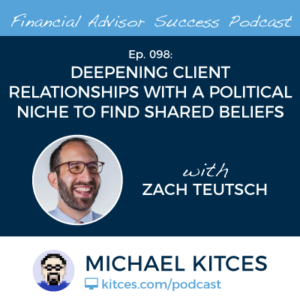The final weeks of the year are some of the busiest for financial advisors as they help their clients not only plan for the upcoming year but wrap up their planning for the current year before it ends. Often, that work is heavily geared towards end-of-year tax planning strategies, such as partial Roth conversions, tax loss (or gains) harvesting, and now deduction bunching under the Tax Cuts and Jobs Act. But the end of the year also offers advisors the opportunity to help clients over 65 potentially save money (or preserve access to key doctors) during the Medicare Open Enrollment Period, which runs each year from October 15 through December 7, by making changes to their coverage (which then take effect on January 1) that generally can’t happen during the other 44 weeks of the year.
The first key adjustment opportunity – and important annual review process – is to assess whether any changes need to be made to a Medicare enrollee’s Part D prescription drug plan, as providers do change formularies (the list of available favorably-priced drugs) from year to year, and failure to monitor the situation can lead to a spike in medical costs if key drugs are suddenly no longer covered.
For those who are over age 65 and don’t have a Part D prescription drug plan, the next option during the annual Open Enrollment Period is to add one. The caveat, however, is that, for individuals that did not sign up for Part D during their initial enrollment period (which is a six-month window spanning the three months prior to and after their 65th birthday) they will almost certainly have to pay an ongoing “late enrollment penalty” in addition to their regular premiums, unless they have “creditable coverage” from another prescription drug plan in retirement. Though for those who already face a late enrollment penalty, waiting further will just further increase the penalty from here!
In some cases, though, the key Medicare change opportunity is not just to switch Part D prescription drug plans, but to change the entire Medicare plan itself – from original Medicare to a Medicare Advantage (Part C) plan, or vice versa. Medicare Advantage plans are offered through various private insurance companies (rather than through the Federal Government) and are often lower cost than traditional Medicare (with often an even wider range of benefits, including not only Part B and Part D coverage but sometimes even dental and vision coverage as well). However, Medicare Advantage plans encourage (or really, require) individuals to utilize providers with whom the carriers have negotiated concessions and discounts (i.e., in the Advantage plan’s “network”)… which means it’s necessary to monitor the plans each year to ensure that the desired doctors are available, or otherwise switch plans to another that includes the desired doctors. And those who relocate may wish to switch altogether into (or out from) a Medicare Advantage plan, as the quality of network (and therefore popularity of the plans) varies tremendously from one geographic region to another.
Ultimately, though, the key point is simply to recognize that, while the last couple of months of the year are especially hectic, there are several opportunities for planners to add real value for their clients. And for older clients, it goes beyond just end-of-year tax planning, but also helping them perform an annual “check-up” on their Medicare coverage, which can end up saving them not only time and money, but can ensure that they continue to see the doctors they want to see (and take the prescription drugs they want/need to take) in the first place!

 Welcome back to the 99th episode of the Financial Advisor Success podcast!
Welcome back to the 99th episode of the Financial Advisor Success podcast! Welcome back to the 98th episode of the Financial Advisor Success!
Welcome back to the 98th episode of the Financial Advisor Success!
